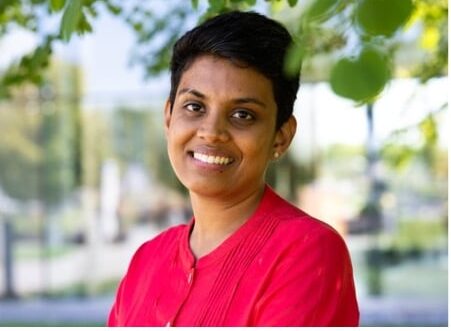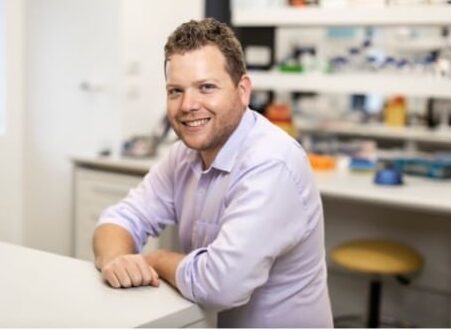
At PacBio we are obsessively motivated to create the most powerful long and short-read sequencing technologies in the world — so that you can shatter the status quo and forge a new frontier in biology.
Through our annual grant program, PacBio awards free sequencing services to outstanding research proposals that have the potential to advance scientific knowledge across the full spectrum of DNA and RNA sequencing applications — from cancer biology to microbial sciences, plant and animal biology, and more.
With the 2023 PacBio grant application period now closed, we are pleased to present to you the winning proposals for our 2023 Plant + animal SMRT Grant and our 2023 Australia + New Zealand Revio HiFi sequencing experience grant.
2023 Plant + animal SMRT Grant winners

Sneha Couvillion
Biological Sciences Division, Pacific Northwest National Laboratory

Kirsten Hofmockel
Biological Sciences Division, Pacific Northwest National Laboratory
Proposal title: PacBio sequencing for climate-resilient bioenergy feedstocks
Abstract
Our research aims to optimize plant-microbe partnerships, yielding climate-resilient bioenergy feedstocks that thrive in arid and marginal soils, while contributing to carbon sequestration and overall soil health. Specifically, our focus is on tall wheatgrass (Thinopyrum ponticum), a perennial grass that thrives in the Western US without irrigation or fertilization. Highly accurate PacBio HiFi sequencing will be transformative for our research, providing a complete genome essential for downstream multi-omics analyses integrating transcriptomics, proteomics, and metabolomics data. This will uncover key genes, proteins, small molecules, and metabolic pathways associated with rhizodeposition, mycorrhizal fungi symbiosis, and drought tolerance.
2023 Australia + New Zealand Revio HiFi sequencing experience grant winner

Dr. Benjamin Nash
Proposal title: Opportunities for precision medicine research in inherited retinal dystrophies using long-read sequencing
Summary
Inherited retinal dystrophies (IRDs) are a genetically and clinically complex group of disorders with over 250 known disease genes where definitive molecular diagnosis is only achieved in up to 50% of patients. There is a significant worldwide burden of disease. The most frequent disease genes are autosomal recessive genes ABCA4 and USH2A, with high carrier frequencies of 1:25 and 1:70, respectively. Excitingly, these genes have trials currently underway in NSW and across Australia. However, samples from eligible individuals can be difficult to resolve effectively using short-read sequencing, and frequently remain unsolved as testing is often limited to a single proband sample.
Challenges exist in achieving the goal of comprehensive genomic diagnosis in the IRDs. These challenges include definitive analysis of the highly repetitive RPGR_ORF15 locus; structural and copy number variants (SV/CNVs) with nucleotide precision: deep intronic variants; and phasing of variants to confirm biallelic disease required for clinical trial and gene therapy eligibility. PacBio Revio HiFi long-read sequencing has the potential to provide a comprehensive view into many of these problems. Furthermore, investigation of the vast non-coding regions using emerging datasets such as T2T-CHM13 will provide the ability to look beyond the short-read sequencing genome.
We will apply PacBio Revio HiFi long-read sequencing in this project to samples from 5 partially resolved IRD patients, specifically exploring instances where this technology could reveal previously unknown biology that may one day allow healthcare providers to make a significant clinical difference. This will include analyzing samples from an individual with an RPGR_ORF15 variant, samples from three individuals with variants in separate genes (including ABCA4 and USH2A) where phase analysis would be beneficial, and samples from two individuals to explore SV/CNVs. This will ultimately allow for exploration of difficult-to-sequence genes across the entire genome.
How to apply for future PacBio grants
Interested in free HiFi sequencing for an upcoming project?
On a yearly basis, the PacBio grant program offers scientific investigators the opportunity to win free PacBio sequencing services for their research projects.
To apply, simply select an open grant program aligned with your field of study, read the instructions, fill out the application, and succinctly tell us how your research will benefit from HiFi sequencing. Applications are then evaluated, and winners will be contacted by PacBio to coordinate free consumables, library preparation, HiFi sequencing, and initial bioinformatic analyses provided by an approved sequencing service provider.
Grants are offered across all areas of the life sciences. Whether you are studying intricate microbiomes, complex cancer tumors, rare and endangered species, or the dark regions of the human genome — there is a grant available for you.